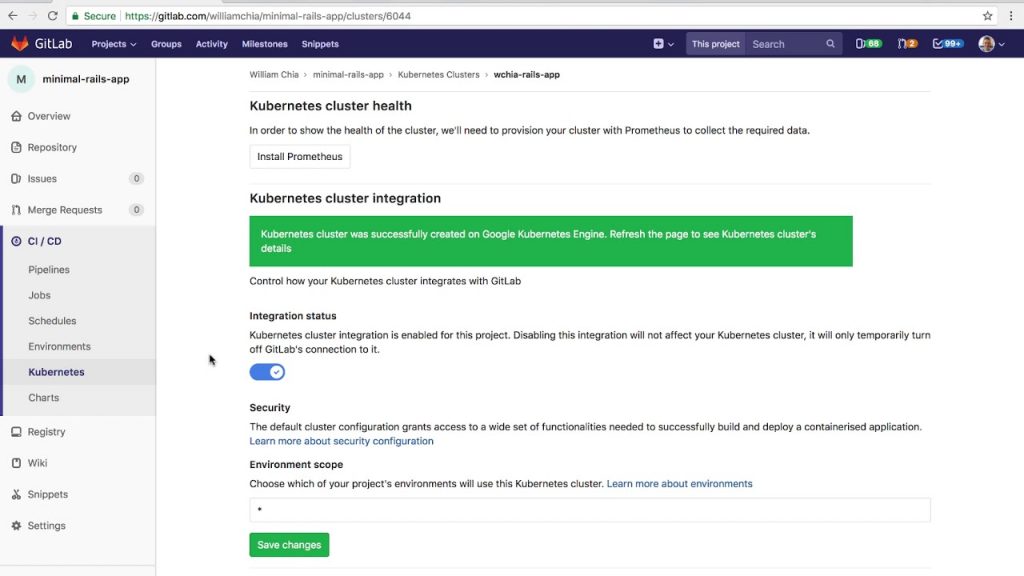GitLab Embraces Kubernetes
GitLab this week announced it will be making its repository for managing DevOps processes available on Kubernetes to help accelerate development of modern microservices-based applications built using containers.
Priyanka Sharma, technical evangelist for GitLab, says support for Kubernetes will make it easier for DevOps teams that have embraced Kubernetes to implement best DevOps practices without having to access a Git-based repository running on another platform.
As part of that effort, GitLab also embedded a container registry and open source Prometheus container monitoring tools in its platform as well as integration with the Google Kubernetes Engine (GKE) so DevOps teams can spin up Kubernetes clusters on the Google public cloud with just a few clicks. In a similar fashion, DevOps teams can also deploy applications such as Helm Tiller and Ingress.
 Other capabilities being provided by GitLab include dashboards that provide a consolidated view of the current health and status of each continuous integration/continuous development (CI/CD) environment running on Kubernetes, the ability to stage rollouts of applications, a default CI/CD setting automatically generates pipelines with no configuration needed, and access to terminals that make is possible to remotely troubleshoot issues.
Other capabilities being provided by GitLab include dashboards that provide a consolidated view of the current health and status of each continuous integration/continuous development (CI/CD) environment running on Kubernetes, the ability to stage rollouts of applications, a default CI/CD setting automatically generates pipelines with no configuration needed, and access to terminals that make is possible to remotely troubleshoot issues.
Sharma says support for Kubernetes is crucial because it enables more operational control to be shifted left toward the developer. Organizations have come a long way in terms of embracing continuous integration, but continuous deployment remains a challenge. With the rise of Kubernetes, it will become easier for developers to programmatically deploy applications across multiple clouds, she notes.
That concept may take some time for operational teams to embrace, but organizations that don’t make that shift will find themselves falling behind in terms of their ability to roll out and update applications, says Sharma. That capability, she adds, is critical to any digital business transformation initiative that depends on introducing new processes and capabilities at a much faster cadence than what used to occur in legacy applications environments.
Sharma says GitLab is not expecting a wholesale shift to Kubernetes. Many organizations have already deployed GitLab repositories and tools on other platforms. But as the volume of microservices-based applications being built and deployed on Kubernetes increases, the need to deploy an instance of GitLab on Kubernetes will grow, she says. In fact, Sharma notes that given the inherently complexity of building microservices-based applications, many more organizations are about to discover the need to implement best DevOps process using platforms such as GitLab.
It may be a while for IT operations teams to come to terms with Kubernetes. But as platforms such as GitLab give developers more control over Kubernetes clusters by, for example, automating the deployment process at a higher level of abstraction, it becomes clear the relationship between developers and IT operations teams is fundamentally changing. In fact, it’s now only a matter of time before most IT organizations are reorganized to better reflect that new DevOps reality.




